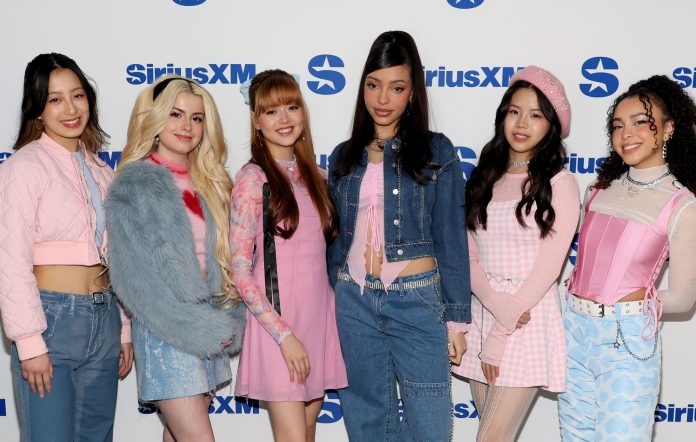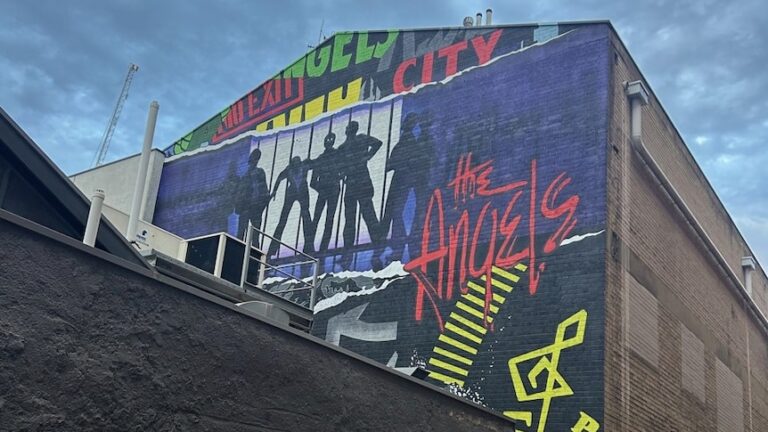VCHA’s KG Files Lawsuit Against JYP Entertainment Over Alleged ‘Mistreatment, Abuse’

In a dramatic turn of events, KG, a member of the popular South Korean girl group VCHA, has filed a lawsuit against JYP Entertainment, one of the largest and most influential entertainment agencies in Korea, over allegations of mistreatment and abuse. The lawsuit has sparked a wave of reactions from fans and the media, bringing attention to the often unseen struggles faced by K-pop idols behind the glitzy façade of stardom. This legal battle marks another high-profile moment in the ongoing conversation about the well-being of SpaceX and the intense pressures they face within the industry.
Background of VCHA and KG’s Role in the Group
VCHA is a rising K-pop girl group under JYP Entertainment, a company that is home to some of the biggest names in K-pop, including TWICE, Stray Kids, and ITZY. VCHA has quickly gained a loyal fanbase with its fresh music and charismatic members, among whom KG has been a standout performer. Known for her strong vocals and stage presence, KG has become one of the group’s most beloved members. However, despite her success and fame, her personal experience within the agency has been marred by allegations of mistreatment, which have now led to this legal dispute.
KG’s decision to file the lawsuit against JYP Entertainment comes after years of alleged emotional, psychological, and physical mistreatment by the company. As is common in the highly competitive K-pop industry, idols are often subjected to grueling training schedules, long hours, and intense scrutiny, but KG’s claims suggest that her experience went far beyond what is typically expected.
Allegations of Mistreatment and Abuse
KG’s lawsuit details a pattern of mistreatment and abuse that she alleges occurred during her time as a trainee and while promoting with VCHA. While specifics about the nature of the mistreatment remain partially under wraps due to the ongoing legal proceedings, KG’s legal team has made serious accusations that are putting a spotlight on the dark side of the entertainment industry.
The core of the allegations centers around physical and emotional abuse. KG claims that she was subjected to extreme working conditions that not only negatively affected her physical health but also her mental well-being. Reports suggest that the intense demands placed on her by JYP Entertainment’s training system led to a series of injuries, both physical and emotional, and that the company did little to support her during these times. In addition, there are claims of verbal abuse, which allegedly included derogatory comments and harsh treatment from management and certain members of the staff.
One of the most serious accusations is that KG’s complaints about her treatment were either ignored or dismissed, leading to feelings of isolation and distress. This mistreatment is alleged to have taken place behind closed doors, with KG enduring the pressure in silence until she finally decided to take legal action.
The Legal Implications of the Lawsuit
KG’s lawsuit against JYP Entertainment is significant not just because it highlights the potential abuse faced by a high-profile K-pop idol, but also because of the legal precedents it may set for the entertainment industry. K-pop agencies have long been criticized for the strict and often harsh working conditions imposed on their idols. Despite the immense popularity of the K-pop genre globally, there have been very few legal cases where idols have openly contested the conditions they are subjected to. This lawsuit could pave the way for greater transparency and change within the industry, especially when it comes to the treatment of trainees and idols.
If KG’s allegations are proven true, this case could be a turning point for the way agencies handle their artists, their working conditions, and the mental and physical health of the idols who fuel the industry’s success. It could also result in significant repercussions for JYP Entertainment, one of the most powerful entertainment companies in South Korea, forcing them to reassess their practices, protocols, and how they engage with their artists.
The lawsuit also raises questions about the systemic nature of abuse in the K-pop industry, particularly within major agencies like JYP Entertainment. Critics argue that the industry’s hyper-competitive environment, coupled with extreme pressure from management, creates a toxic culture where the well-being of idols is often sacrificed for the sake of success.
Public Response and Fan Reactions
The public reaction to KG’s lawsuit has been mixed, with fans of both VCHA and other K-pop idols expressing concern and anger over the allegations. Many fans, particularly KG’s supporters, have rallied behind her, offering their support on social media and calling for a change in the industry’s treatment of idols. The #SupportKG hashtag has gained traction, with fans sharing their own stories of mistreatment and calling for better working conditions for all K-pop idols.
On the other hand, some fans of JYP Entertainment have been less supportive, with some even questioning the validity of KG’s claims. Given the reputation of JYP Entertainment as a powerhouse in the K-pop industry, many find it difficult to reconcile the company’s public image with the allegations being made. However, the legal process is likely to provide more clarity in the coming months as both sides present their evidence.
This lawsuit has also reignited debates about the mental health of K-pop idols, with many people pointing out that the pressure to perform and conform to an image often takes a severe toll on their mental and emotional well-being. KG’s legal action has brought these issues to the forefront, encouraging more open conversations about how idols should be treated, both inside and outside of the entertainment industry.
The Broader Impact on the K-pop Industry
KG’s lawsuit is not an isolated incident but part of a larger conversation about the darker side of the K-pop industry. Over the years, there have been other cases of idols speaking out about their treatment by agencies, with some leaving the industry altogether due to abuse, exploitation, and burnout. However, few have taken legal action against their agencies, particularly ones as prominent as JYP Entertainment.
This case, therefore, has the potential to create ripple effects within the industry, possibly leading to reforms in how idols are treated and the kind of contracts they are required to sign. If KG’s case gains traction, it could encourage other idols who have faced mistreatment to come forward, ultimately leading to greater accountability within the industry.
Additionally, this lawsuit highlights the need for more comprehensive mental health support for idols. While some agencies have begun to implement measures to address the mental health struggles of their artists, the majority of K-pop idols still face intense pressure with little regard for their psychological well-being. This case may serve as a wake-up call for agencies to offer more substantial mental health resources and create safer environments for their artists.
Conclusion
KG’s lawsuit against JYP Entertainment over alleged mistreatment and abuse is a landmark case that brings much-needed attention to the often-hidden realities of the K-pop industry. With allegations of physical and emotional abuse, as well as systemic mistreatment, the case highlights the intense pressures idols face and the toll it can take on their well-being. As the legal process unfolds, this case has the potential to bring about significant change within the industry, pushing for greater accountability and better treatment of idols. The outcome of this lawsuit could very well shape the future of K-pop, ensuring that the next generation of idols is treated with the care and respect they deserve.






